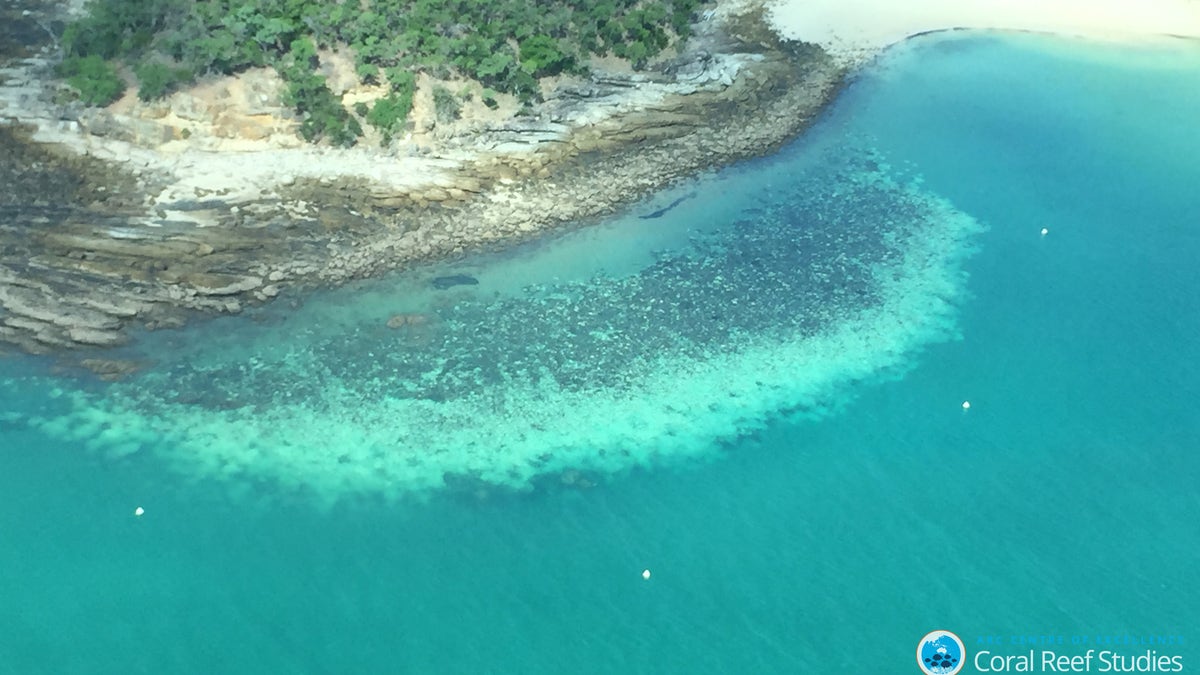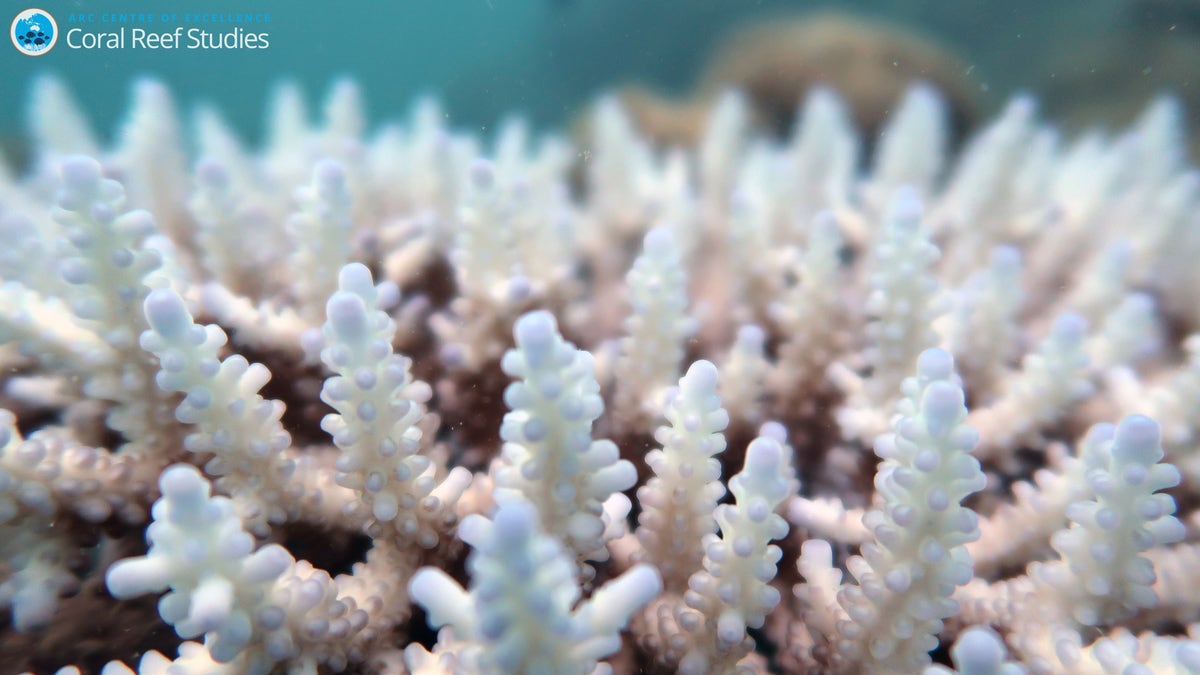Australia's Great Barrier reef is experiencing its most widespread bleaching event ever recorded.
Coral bleaching is caused by thermal stress due to spikes in sea temperatures during unusually hot summers. The first recorded mass bleaching event along the Great Barrier Reef occurred in 1998. There have been multiple mass bleaching events since then as temperatures hit new highs.
Aerial surveys conducted along the 2,000-kilometer-long reef over nine days in late March show that 25 percent of 1,036 individuals reefs surveyed were severely affected, with more than 60 percent of corals bleached. Another 35 percent of the reefs had less extensive bleaching.
TRUMP SIGNS ORDER ON MOON MINING, PULLING RESOURCES FROM ASTEROIDS

The largest bleaching at Australia's Great Barrier reef has been observed by scientists. (ARC Centre of Excellence for Coral Reef Studies B3)
“We surveyed 1,036 reefs from the air during the last two weeks in March, to measure the extent and severity of coral bleaching throughout the Barrier Reef region,” said Terry Hughes, director of the ARC Centre of Excellence for Coral Reef Studies at James Cook University, in a statement.
“For the first time, severe bleaching has struck all three regions of the Great Barrier Reef – the northern, central and now large parts of the southern sectors,” Hughes added.
According to scientists, February had the highest monthly temperatures ever recorded on the Great Barrier Reef since the Bureau of Meteorology’s sea surface temperature records began in 1900.
NASA REVEALS EAGLE NEBULA'S PILLARS OF CREATION IN NEW IMAGE

Scientists observed a massive bleaching event at Australia's Great Barrier reef. (Kristen Brown/ARC Centre of Excellence for Coral Reef Studies)
“As summers grow hotter and hotter, we no longer need an El Niño event to trigger mass bleaching at the scale of the Great Barrier Reef,” Hughes said. “Of the five events we have seen so far, only 1998 and 2016 occurred during El Niño conditions.”
Researchers say that the number of reefs that have not been subjected to bleaching events continues to dwindle. Those reefs are located in more remote parts of the south, in the far north or offshore.
